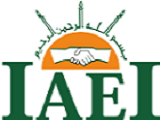Innovation of Infrastructure Financing Through Optimization of Financial Investment of Domestic Hajj Funds
Abstract
The suitability ofothe management of Hajj funds to be invested inovarious infrastructure developmentoprojectsobasedoonosharia principles and laws and regulations can be a benefit. The use of hajj funds for infrastructure financing can increase the value of the benefits of hajj funds even though they contain risks. Therefore, the use of hajj funds to finance infrastructure investment requires further study. The author is interested in conducting a study of the suitability of the policy forotheomanagement (investment) of Hajj funds in infrastructure financing in relation to Law Number 34oof 2014 concerning Hajj Financial Management. The article uses descriptive narrative analysis method. Based on the review narrative literature and the Indonesia Government Policy during 2012 until 2020. The analysis used is top down by analyzing macro factors towards the study, especially innovation of infrastucture investment. The existence of this conformity will provide confidence that the interests of prospective pilgrims will always be prioritized. Based on conclusions research is: the price range of hajj finances may be invested to help financing/supplying infrastructure due to the fact hajj finance has the nature of being a deposit fund so that it resembles the use of the wadiah yadh dhamanah principle in an sharia finance attitude, making it possible for the Hajj Financial Control Agency (BPKH) to optimize the value of the benefits of the budget. And based on descriptive literature, the financial investment of hajj funds is aimed at obtaining optimal value for the benefit of improving the implementation of the hajj pilgrimage by prioritizing the security aspects of the prospective hajj pilgrims' funds.
Keywords
Full Text:
PDFReferences
Andina, A. T. (2014). Analisis Perbandingan Kinerja Reksa Dana Campuran dan Reksa Dana Saham dengan Menggunakan Metode Indeks Sharpe. In Skripsi Upi (Vol. 3).
Ascarya, D. Y. (2003). Bank syariah: Gambaran umum pusat. In pengertian Bank Syariah journal (Vol. 14, Issue 14).
Awaluddin. (2020). Analisis Fiqh Terhadap Akad Dana Talangan Haji Pada Bank Syariah. Seminar Nasional Teknologi Komputer Dan Sains (SAINTEKS), 1(1).
Aziz, R. M. (2018). Hahslm Theory as Guidance of Straight Path in Management of Hajj and Finance. KnE Social Sciences, 3(8). https://doi.org/10.18502/kss.v3i8.2503
DSN-MUI. (2014). Fatwa Dewan Syariah Nasional-Majelis Ulama Indonesia No: 94/DSN-MUI/IV/2014 Tentang Repo Surat Berharga Syariah (SBS) Berdasarkan Prinsip Syariah. 19, 1–9.
Jumali, E. (2018). Management of Hajj funds in Indonesia. Journal of Legal, Ethical and Regulatory Issues, 21(3).
Muneeza, A., Sudeen, A., Nasution, A., & Nurmalasari, R. (2018). A Comparative Study of Hajj Fund Management Institutions in Malaysia, Indonesia and Maldives. International Journal of Management and Applied Research, 5(3). https://doi.org/10.18646/2056.53.18-009
Sakinah, S. (2015). Investasi Dalam Islam. Iqtishadia: Jurnal Ekonomi & Perbankan Syariah, 1(2). https://doi.org/10.19105/iqtishadia.v1i2.483
Sinurat, J. A. . (2010). Tinjauan Yuridis Terhadap Investasi Asing yang Hendak Melakukan Pembelian Saham Mayoritas Melalui Investasi Portofolio dalam Pasar Modal (Ditinjau dari UU Nomor 8 Tahun 1995 Tentang Pasar Modal dan UU Nomor 25 Tahun 2007 Tentang Penanaman Modal). http://lib.ui.ac.id/detail?id=128947&lokasi=lokal
Ristu Bintoro. (2012). Analisis investasi..., FT UI, 2012.
DOI: http://dx.doi.org/10.24042/febi.v6i2.11168
Refbacks
- There are currently no refbacks.
Copyright (c) 2021
Ikonomika : Jurnal Ekonomi dan Bisnis Islam is a Journal of Islamic Economics and Business, Published by the Faculty of Islamic Economics and Business at UIN Raden Intan Lampung Indonesia. This work is licensed under a Creative Commons Attribution-ShareAlike 4.0 International License.






11.png)


